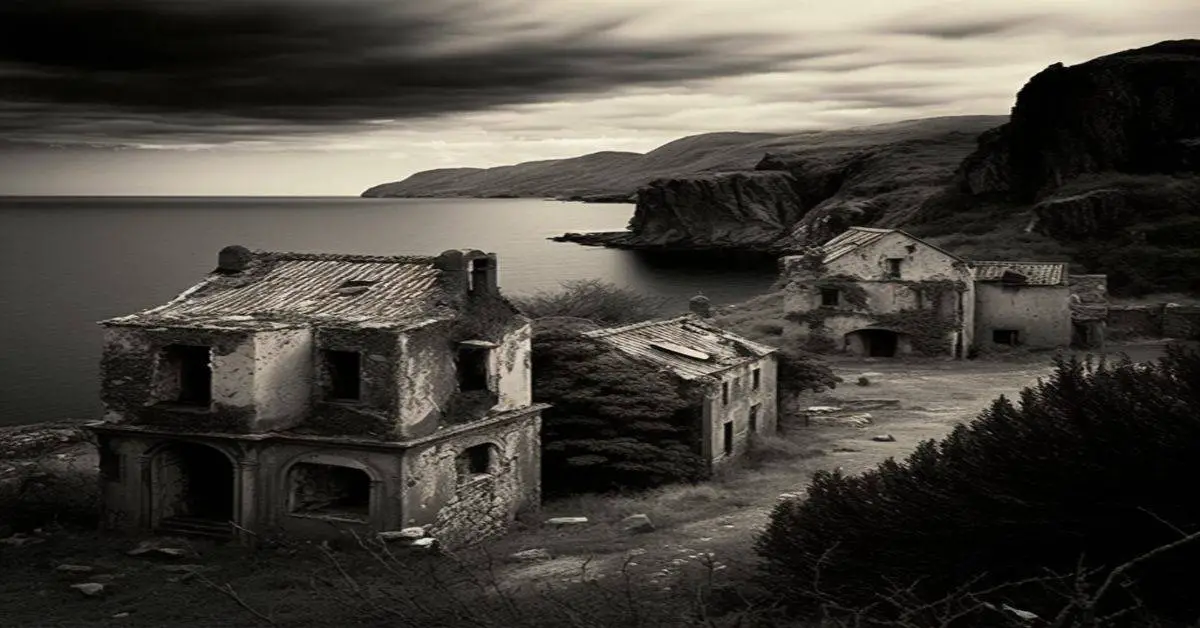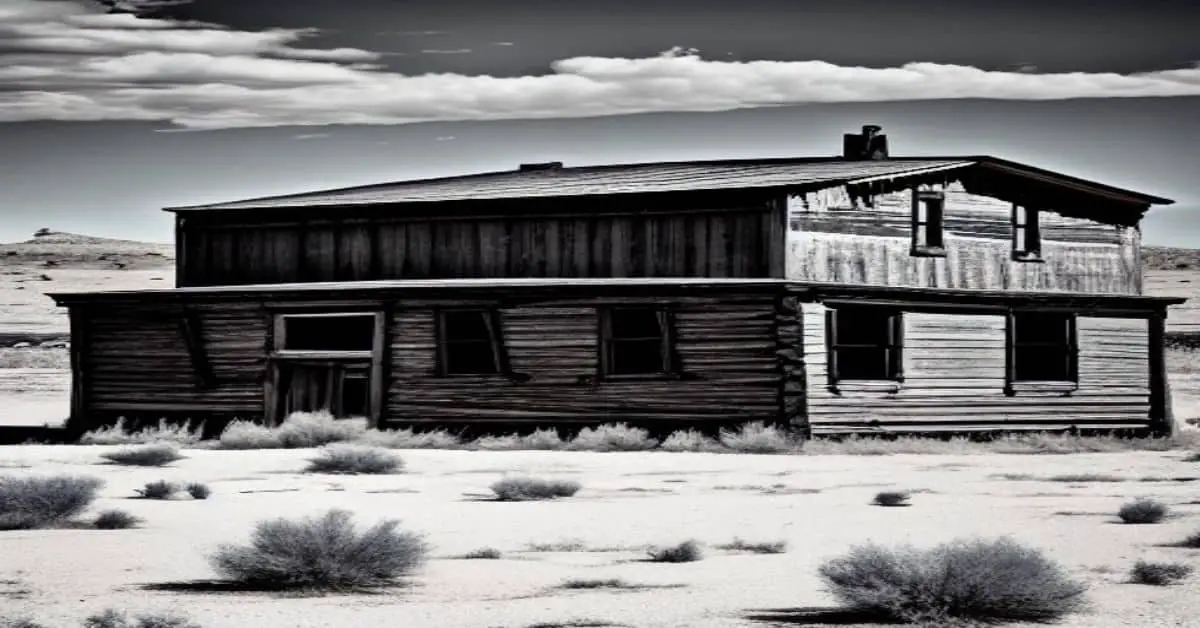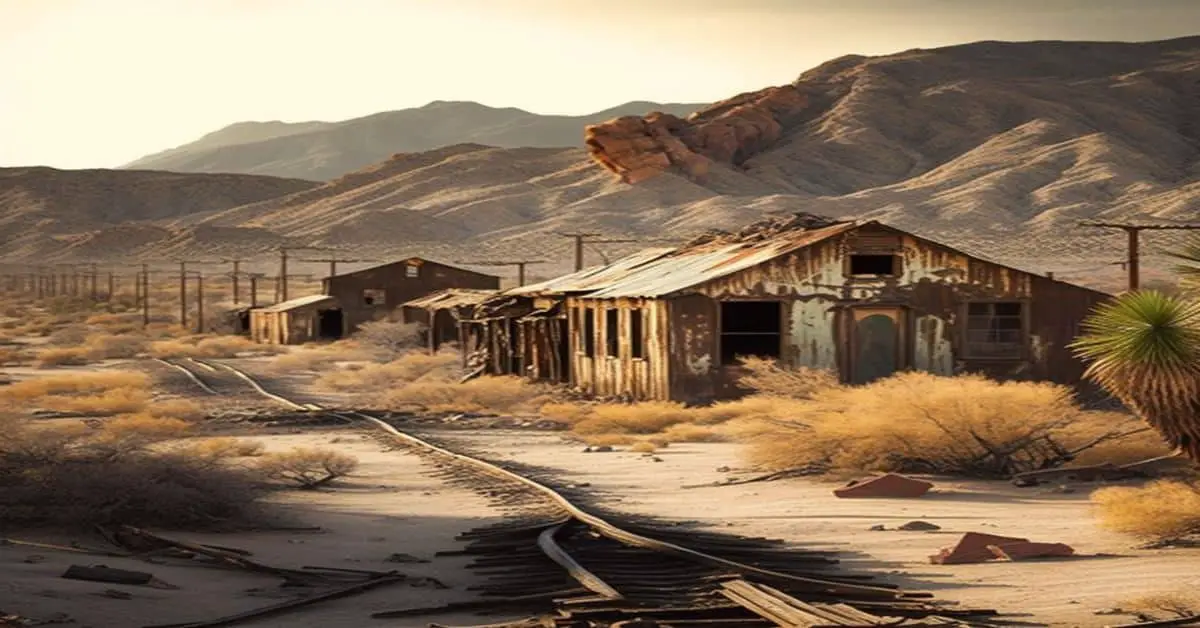Located in Apache County, Arizona, Concho is a farming community with a unique place in the state’s history. While not technically a ghost town, Concho is home to numerous adobe buildings dating back to the late 19th century, including the Concho Church that still stands today.
Visitors to Concho are provided with a chance to experience Arizona’s past and gain an understanding of its agricultural roots. Concho’s warm winters and hot summers make it a great place to visit year-round. Whether you’re interested in history, architecture, or simply looking for a unique experience, Concho has plenty to offer.
With a range of remains and buildings from the past, visitors can immerse themselves in the farming community’s living history and gain a deeper appreciation for Arizona’s cultural heritage. In this article, we will explore the location and climate of Concho, as well as the remains and buildings that make it a must-visit destination for anyone interested in the history of Arizona’s farming communities.
Key Takeaways
- Concho is a living community with well-preserved adobe buildings and historic structures dating back to the late 19th century.
- Visitors can immerse themselves in the farming community’s living history and gain a deeper appreciation for Arizona’s cultural heritage.
- Concho offers visitors a chance to sample local cuisine and participate in community events throughout the year.
- The preservation efforts undertaken at Concho are a testament to the cultural significance of this site, making it a must-visit destination for anyone interested in the rich history of the American Southwest.
Location and Climate
Located in Apache County, Arizona, Concho is a rural community that offers visitors a unique opportunity to explore a living history of Arizona’s farming community. Concho is situated in a basin-like area, which led to its name, and is accessible by 2WD roads.
The climate in Concho is warm during the winter and hot during the summer, making it an ideal destination for outdoor activities and exploring the remains of a late 19th century farming community.
Concho also allows visitors to sample local cuisine, influenced by the community’s agricultural roots. Visitors can try dishes made with locally sourced ingredients, including traditional Mexican fare and Native American dishes.
The area’s natural beauty and rich cultural heritage make Concho an ideal destination for those interested in history, culture, and outdoor activities.
Remains and Buildings
The remains at this site consist of numerous adobe buildings constructed in the late 19th century as part of a rural farming community. Despite the passage of time, some of these structures have been preserved in unusually good condition, providing a glimpse into the past and the culture of Arizona’s early settlers.
The Concho Church, which still stands today, is a testament to the community’s religious beliefs and practices, while other buildings such as the post office, provide a window into the daily lives of the people who once called this place home.
The preservation efforts undertaken at Concho are a testament to the cultural significance of this site. The adobe buildings serve as a reminder of the challenges and triumphs of Arizona’s early farming communities, and the importance of preserving these structures for future generations to learn from and appreciate.
The fact that Concho is not technically a ghost town, but rather a living community with a few inhabitants, adds to the site’s value as a cultural treasure. As such, Concho is a must-visit destination for anyone interested in the rich history of the American Southwest.
Visiting Concho Today
To experience the cultural significance of this rural area, visitors can explore the well-preserved adobe buildings and historic structures of Concho. The community’s dedication to preserving its agricultural heritage is evident in the local attractions, such as the Concho Garden Club’s annual flower show, which showcases the area’s unique flora.
Additionally, the Concho Farmers Market, which operates from May to October, offers visitors a chance to purchase fresh produce and handmade crafts from local vendors.
Concho also hosts various community events throughout the year, such as the Concho Rodeo and Parade, which takes place in July and features traditional rodeo events along with a parade through the town.
For those interested in history, the Concho Christmas Bazaar offers a chance to purchase handmade crafts and gifts, as well as learn about the town’s history through exhibits and presentations.
Overall, Concho offers visitors a unique glimpse into Arizona’s farming community and the cultural significance of rural life in the American West.
Frequently Asked Questions
What crops were grown in Concho’s farming community during the late 19th century?
The farming community of Concho in late 19th century utilized diverse farming techniques and crop rotation to produce a variety of crops, including wheat, oats, corn, and beans. The influence of the warm winters and hot summers on crop diversity was significant.
How has the population of Concho changed over time?
Population trends in Concho have seen demographic shifts over time. While it is not technically a ghost town, it has experienced a population decline. However, it still has a few inhabitants and remains a rural community.
Are there any unique traditions or cultural events that take place in Concho?
Concho doesn’t have any known unique traditions or cultural events. However, the rural community is known for its farming heritage and local cuisine. There are no annual festivals that take place in the town.
What is the history behind the Concho Church and its significance to the community?
The Concho Church was built in 1898 and served as an important focal point for the community, providing a place for religious and social gatherings. Its significance lies in its status as a well-preserved example of adobe architecture and its inclusion in historical preservation efforts.
Are there any notable individuals or families that played a significant role in Concho’s history?
Prominent families in Concho’s history include the Lyman and Turley families, who were early settlers and influential in the community. Historical figures such as Mormon pioneer Daniel Webster Jones also played a role in the town’s development.


